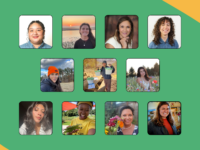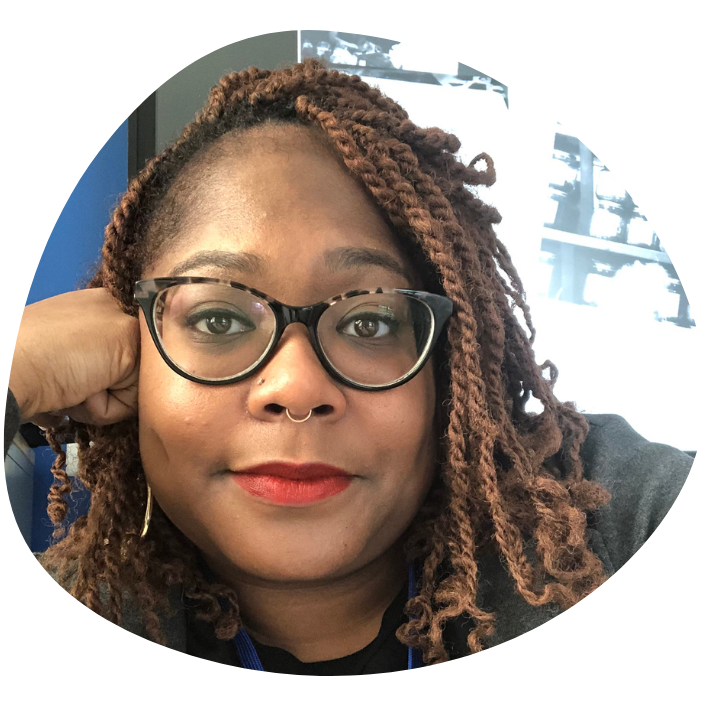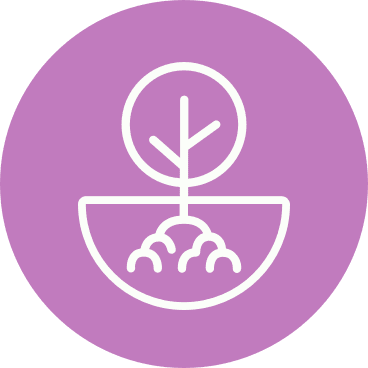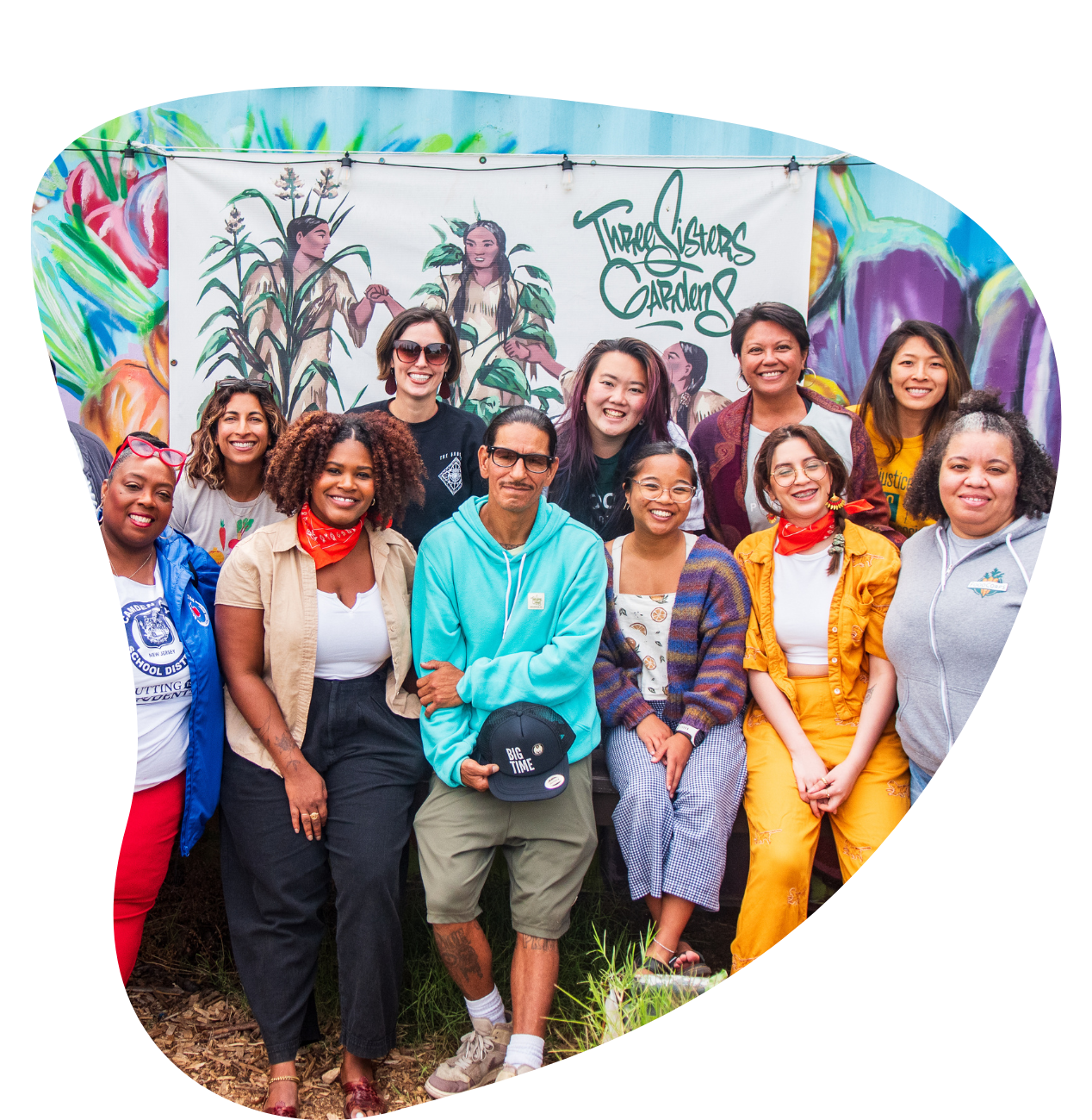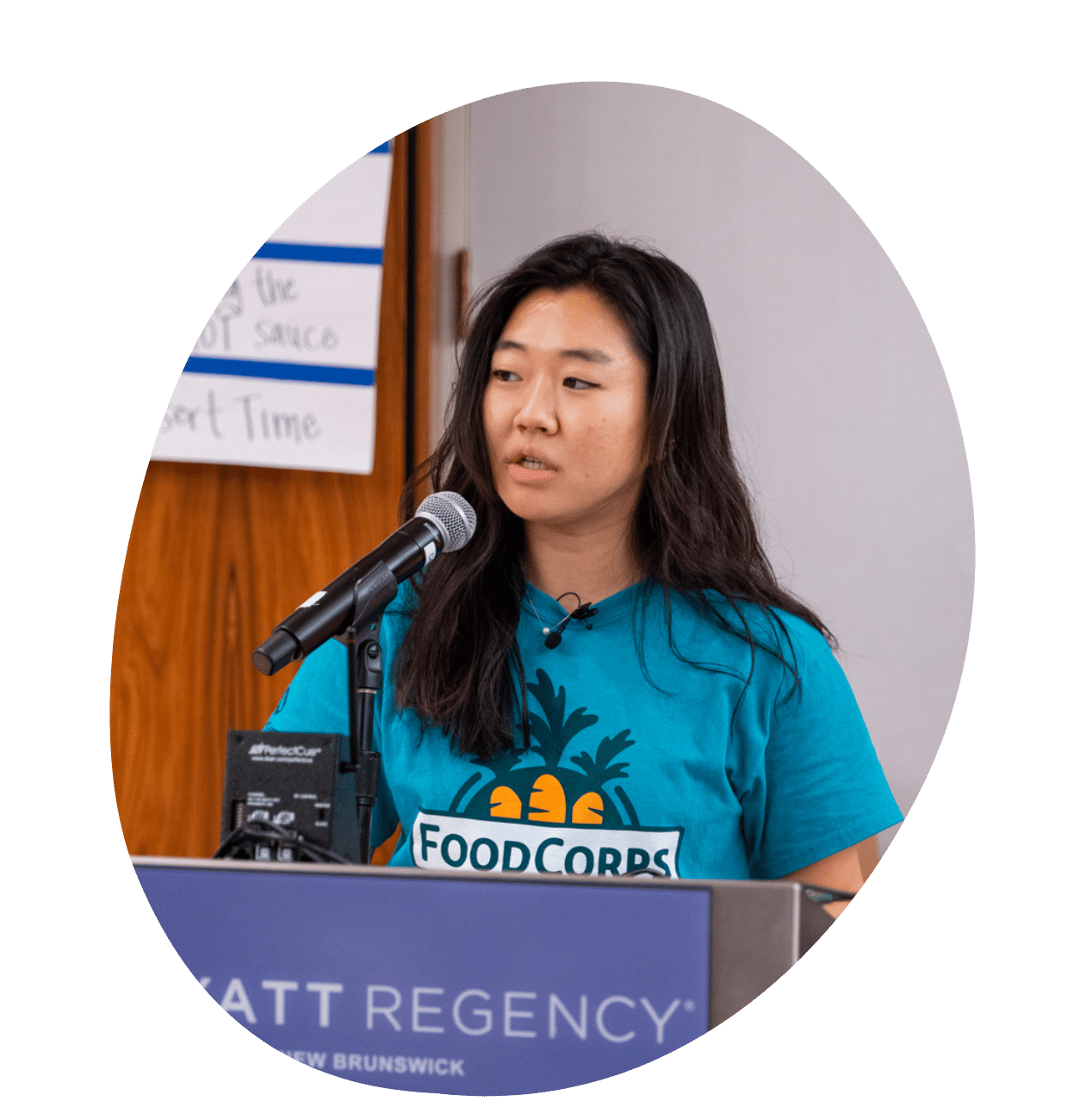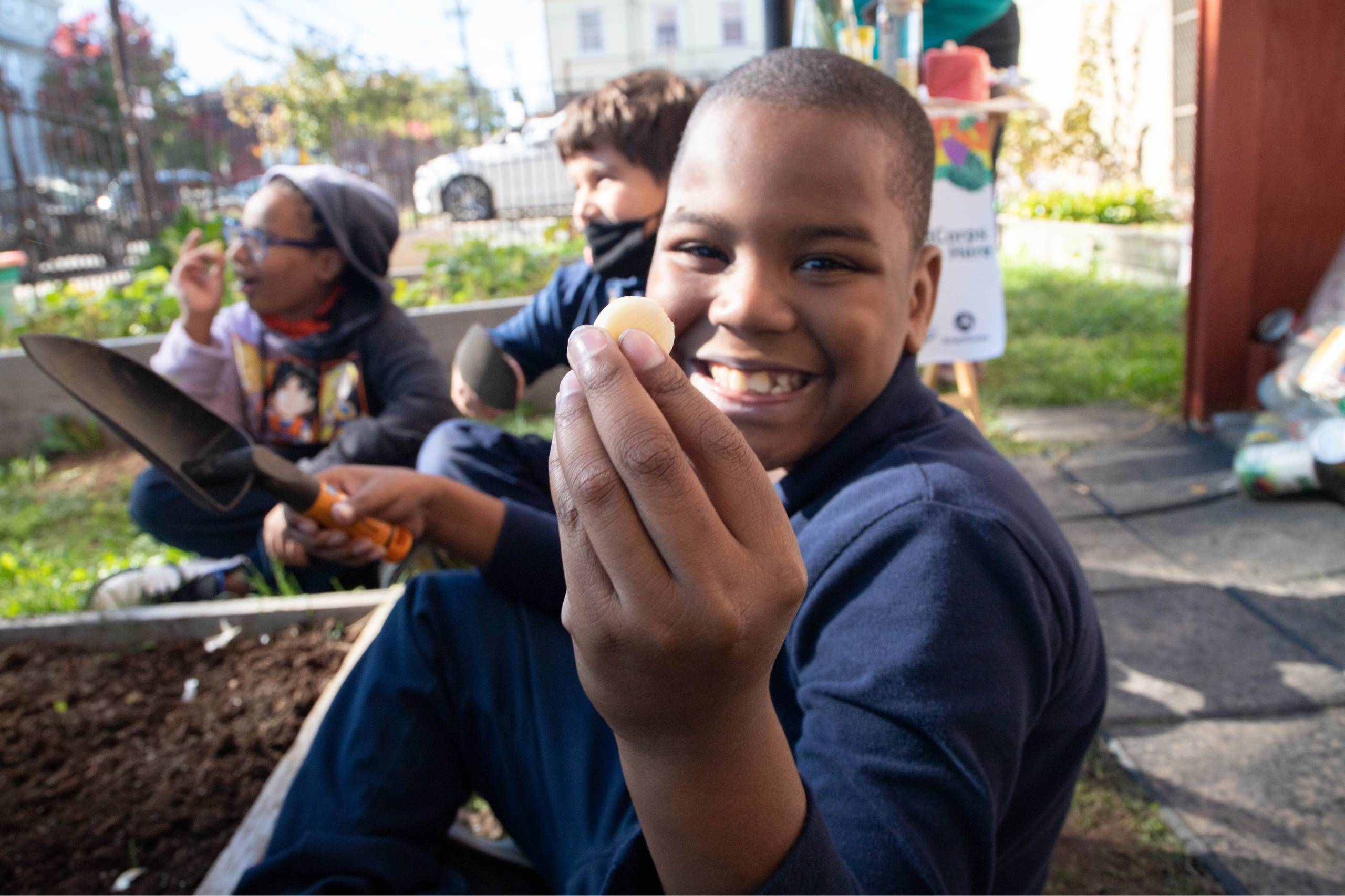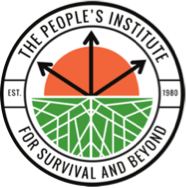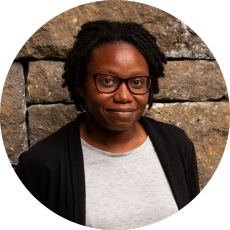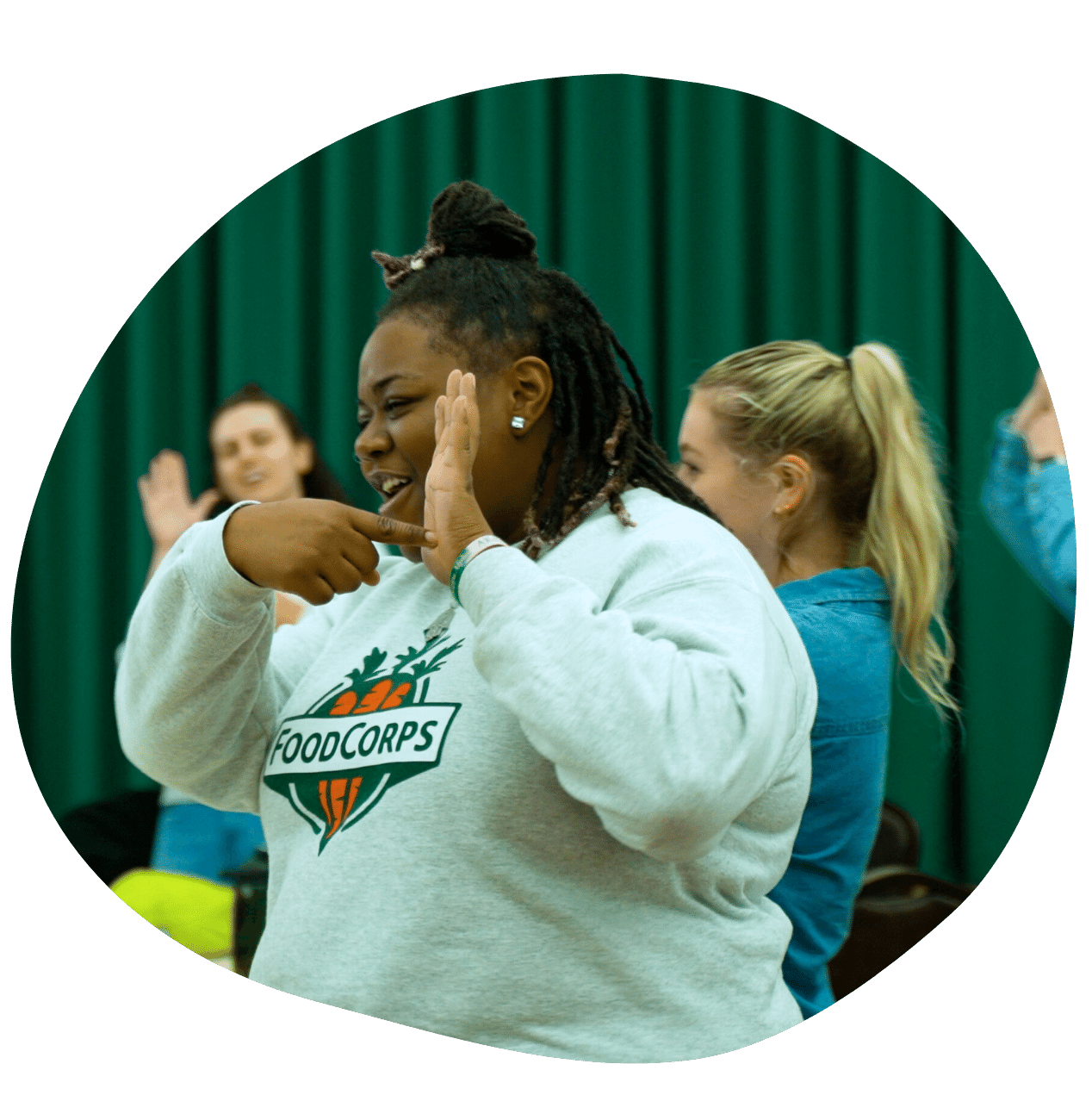Welcome to the third edition of FoodCorps’ annual Diversity, Equity, and Inclusion Report, where we review the efforts we’ve made toward equity and justice in our work—and share how we’ll build on this progress in the future.
For a review of how we got here and a look at our organization’s history with DEI, we recommend revisiting our first report, published in 2021. This work at FoodCorps—a journey toward anti-racism—has had many heads, hearts, and hands guiding it. We remain grateful for the leadership of Tiffany McClain and Kenya Collins, both of whom contributed to where we are today.
The past year was an important one for FoodCorps’ equity work. It marked the first time our entire staff gathered in person since our 2019 retreat, a pivotal moment for confronting the history of inequity in our organization. The 2022-2023 school year also brought about our new identity as a justice organization, a new approach to anti-racism work, and new organizational values.
During times of transition, it’s particularly important for us to remain grounded in our shared commitment to DEI—not merely because it is the right thing to do, but because it makes us better at what we do. Our impact is greater, our vision is clearer, and our movement is more sustainable when we approach this work with justice as a call to heed, not a box to check.
In this report, you’ll hear from our VP of People & Equity, Julia Arrington, about some big shifts we’ve made in our approach to equity work this year. You’ll read about our evolution from the Just FoodCorps Framework to FoodCorps Next, our strategy for setting ambitious anti-racism goals and measuring our progress toward them.
We’ll share how we’re investing in racial identity development for our staff, and offer stories about how DEI showed up in different avenues of our work this year. Finally, we’ll review the demographics of our staff, service corps, and Board of Directors, and invite you to join us in making our world one where all kids can grow and thrive.
But as we’ve shared before, this report is just one snapshot of our round-the-clock work to become the type of organization we’d like to see in the world. We know we do not have all the answers, and neither can one report contain all of our efforts—and missteps—in our DEI journey. That’s why it remains critical for us to be as transparent as we can about this work all year long, and to hold ourselves accountable to our communities, our partners, and you.
Thank you for joining us, and for being a part of this work.
